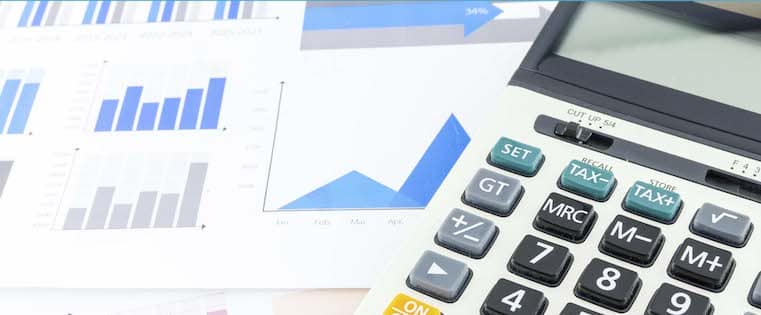Your Guide to Online Sales Tax

Starting an ecommerce company comes with a lot of tiny details. While sales tax isn’t exactly a tiny detail, it may be something you haven’t yet considered. Some outlets will tell you sales tax isn’t required for online sales. In many cases, this is true. Don’t take this as law, however. Instead, this short guide will walk you through the scenarios when you’ll need to charge a sales tax.
When Tax Is Required
If your business has a physical location in any way—whether a storefront or even an office or warehouse—then you’ll have to charge sales tax. The tax should be the applicable state and local tax required wherever your company property is located. If you’re only located in one state, then you’ll only charge taxes to buyers in that particular state.
If you’re located in multiple states, you’ll have to charge the taxes to buyers who live in the states where your physical properties are located. Remember, this includes offices and warehouses, so even if you don’t have a retail center, the taxes apply.
When Taxes Aren’t Required
There are a few scenarios where sales tax won’t be required for your ecommerce store. Study your situation carefully before you make a decision as to whether or not you’re responsible for these charges.
No Physical Location
If your ecommerce company has no physical location at all—no store, warehouse, or office—then you’re not required to charge a sales tax. Since most companies selling products need storage, this is a rare occurrence. Companies that sell only services online might manage to run a business with no physical location.
States Without a Physical Location
You’re only responsible for the sales tax for those states that have a physical location. If your offices are only located in one state, the other 49 will not require sales tax. If you have an office one state, four stores in another, and a warehouse in yet another, those are the only states where sales tax will be required. Remember to check local sales tax regulations for any of your locations, too.
Locations in Exempt States
Believe it or not, some states don’t charge sales tax at all. These include Alaska, Delaware, Hawaii, Montana, New Hampshire, and Oregon. If your physical locations happen to be in these states, you aren’t required to charge a sales tax.
Selling Exempt Items
Many states don’t charge sales tax for food or clothing. If your ecommerce endeavor deals only in food or clothing in these states, then no sales tax will be required. If you sell other items, you’ll need to charge sales tax on the products that don’t fit the “food or clothing” description.
An Easy Solution
Many ecommerce platforms provide shopping carts that will calculate the appropriate sales tax for you. You may need to enter data to help the shopping cart function correctly, but once you do that, the job will be done. Research the ecommerce platforms you plan to use carefully to ensure you choose one that covers you.
Also, keep in mind that laws can change with astonishing regularity. What’s true today may not be true tomorrow. Keep up to date on tax laws in your locations, and keep an eye out for any changes that may occur regarding online sales. While you may not be required to charge tax in certain places now, that could change before you know it.


